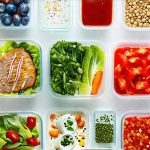The modern diet often feels like an arms race – bigger portions, more ingredients, complex flavor profiles. We celebrate culinary innovation, but this pursuit of gastronomic complexity can inadvertently sabotage one of the most fundamental processes in our bodies: digestion. Many people experience discomfort after meals that aren’t necessarily large in quantity, but rather dense and intricate in composition. This isn’t always about food intolerance or allergy; often it’s simply a matter of overwhelming the digestive system with too much work at once. The body is remarkably adaptable, but even its robust mechanisms have limits when faced with an onslaught of diverse nutrients requiring different breakdown pathways simultaneously.
This phenomenon, which we can broadly categorize as “digestive slowness” due to overcomplicated meals, isn’t a dramatic illness; it’s more akin to a persistent feeling of sluggishness and discomfort after eating. It manifests in various ways – bloating, gas, fatigue, even mild nausea — and is often dismissed as ‘just how I am after eating’. But understanding the underlying reasons can empower individuals to make informed dietary choices that support optimal digestion and overall well-being. This article will explore the factors contributing to digestive slowness caused by overcomplicated meals and offer practical considerations for easing the burden on your digestive system.
The Mechanics of Digestion & Complication Overload
Digestion is far from a passive process; it’s an intricate, staged breakdown of food that begins in the mouth with mechanical disruption and enzymatic action (saliva contains amylase to start carbohydrate digestion). As food travels down the esophagus to the stomach, gastric juices – including hydrochloric acid and pepsin – begin protein denaturation. The small intestine is where the majority of nutrient absorption takes place, aided by enzymes from the pancreas and bile from the gallbladder. Finally, the large intestine absorbs water and forms feces for elimination. Each stage relies on specific enzymes, acids, and muscular contractions, all working in a coordinated sequence.
The problem arises when we introduce meals that demand simultaneous effort from all these systems. Consider a meal containing fried foods (requiring significant fat digestion), complex carbohydrates (demanding amylase activity), protein-rich meats (needing pepsin and protease action), and various spices and additives. The digestive system has to allocate resources across multiple pathways, potentially slowing down the entire process. This isn’t just about quantity; a relatively small meal can be incredibly taxing if its composition is overly complex.
Furthermore, combining foods that digest at different rates exacerbates the issue. For example, pairing quickly-digested carbohydrates with slow-digesting proteins and fats creates congestion in the digestive tract. The faster-digesting components sit waiting while slower ones are processed, potentially leading to fermentation (gas production) and discomfort. A simplified approach—focusing on food combining principles—can significantly reduce this burden.
Why “Food Combining” Isn’t Just a Diet Fad
The concept of ‘food combining,’ often dismissed as an outdated dietary theory, actually holds merit when viewed through the lens of digestive efficiency. It isn’t about rigid rules but understanding how different foods interact during digestion. The core principle is to minimize the simultaneous demand on digestive resources by grouping foods that are digested similarly or don’t interfere with each other’s breakdown processes.
While complete adherence to strict food combining protocols may be unnecessary for most, incorporating its principles can offer substantial relief from digestive slowness. For instance, separating fruits (digested quickly) from heavier meals prevents them from fermenting in the stomach while waiting for slower-digesting foods to be processed. Similarly, limiting the combination of large amounts of protein and starch slows digestion overall, as they require different enzymatic environments.
It’s important to note that food combining isn’t about demonizing any particular food group; it’s about optimizing digestive efficiency. The goal is to reduce the workload on your digestive system, allowing it to function more smoothly and effectively. This can lead to improved nutrient absorption, reduced bloating, and increased energy levels. If you are unsure what tests might help diagnose issues, consider which digestive tests are covered by insurance.
Simple Strategies for Easier Digestion
This section focuses on actionable steps you can take to combat digestive slowness stemming from overly complex meals. These aren’t about restrictive dieting but mindful eating habits that support your body’s natural processes.
- Prioritize Whole, Unprocessed Foods: The more processed a food is, the harder it is for your body to break down due to added ingredients and altered structures. Focus on whole foods in their natural state as much as possible.
- Reduce Ingredient Lists: When cooking or choosing pre-made meals, pay attention to ingredient lists. Fewer ingredients generally mean simpler digestion. A stew with 10 ingredients is less taxing than one with 30.
- Chew Thoroughly: This seems basic, but it’s crucial! Chewing breaks down food mechanically and mixes it with saliva, initiating the digestive process before it even reaches the stomach. Aim for 20-30 chews per bite.
The Role of Hydration & Fiber
Adequate hydration is absolutely essential for optimal digestion. Water helps to soften stool, facilitating its passage through the digestive tract and preventing constipation – a common consequence of slow digestion. Dehydration forces the body to pull water from other sources (including the colon), further hindering movement and potentially exacerbating bloating. Aim for at least 8 glasses of water per day, adjusting based on activity level and climate.
Fiber plays a dual role in digestive health. Soluble fiber absorbs water, forming a gel-like substance that slows digestion and promotes regularity. Insoluble fiber adds bulk to stool, helping it move through the digestive tract more efficiently. However, increasing fiber intake without sufficient hydration can worsen constipation. Gradually increase your fiber intake from sources like fruits, vegetables, whole grains, and legumes while ensuring you drink plenty of water. Planning prep-ahead meals can also simplify things.
Mindful Eating & Stress Management
Digestion isn’t solely a physical process; it’s deeply intertwined with our mental state. When we are stressed or distracted, the body shifts resources away from digestion towards the “fight-or-flight” response. This slows down digestive processes and can lead to discomfort. Mindful eating—paying attention to your food without judgment—can significantly improve digestion.
Here’s how to practice mindful eating:
1. Eliminate distractions (TV, phone, work).
2. Sit down and focus on your meal.
3. Take slow, deliberate bites.
4. Savor the flavors and textures of your food.
5. Eat until you are satisfied, not overly full.
Stress management techniques such as meditation, yoga, or deep breathing exercises can also help to regulate the nervous system and promote healthy digestion. Creating a calm and relaxed environment before and during meals allows your body to focus on the task at hand – efficiently digesting your food. Comfort meals can be helpful here too. And for those looking to support their digestive system long term, consider rebuilding digestive tolerance. Finally, simple meals like one dish meals can make things easier.


















